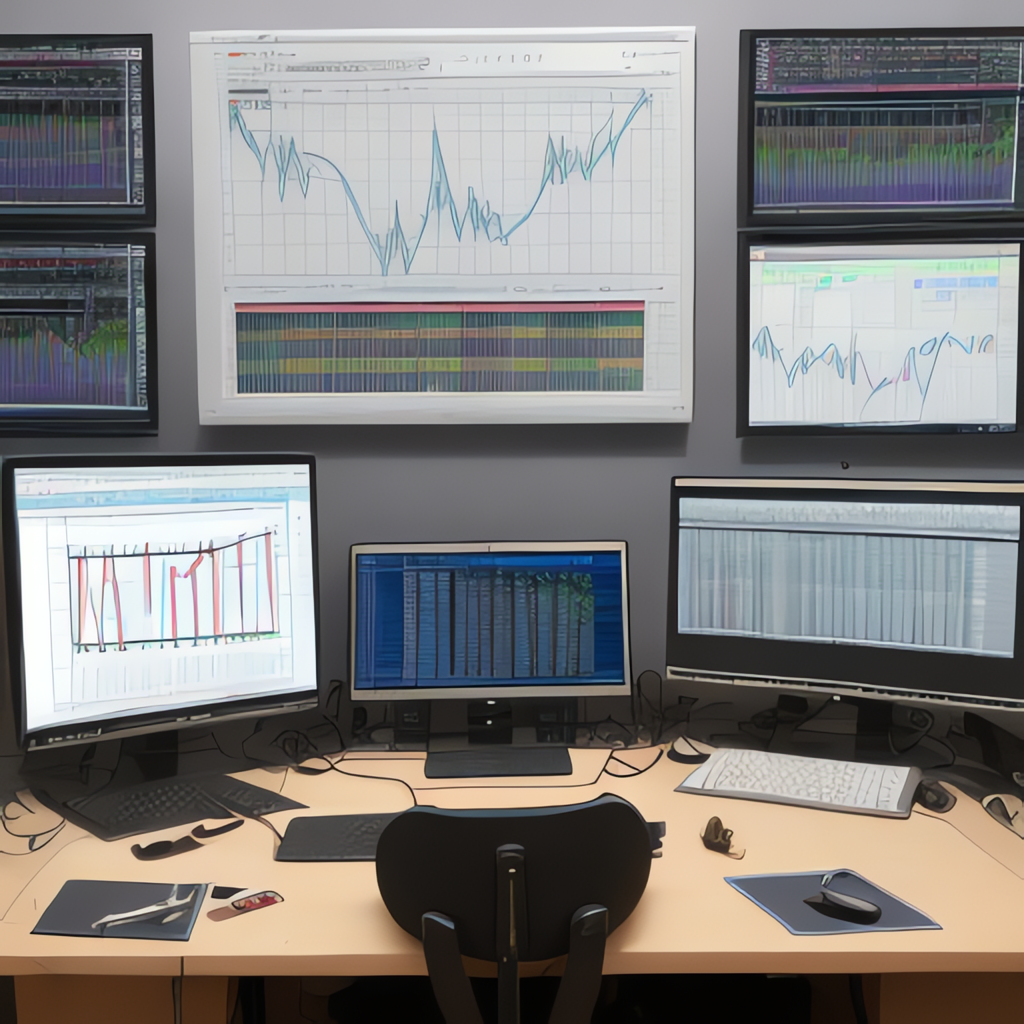Navigating the Visualization Universe: An In-depth Guide to Understanding and Employing Various Chart Types for Enhanced Data Interpretation
Title: Navigating the Visualization Universe: An In-depth Guide to Understanding and Employing various Chart Types for Enhanced Data Interpretation Article Introduction: Data visualization is an essential tool for understanding complex datasets quickly and accurately. With the sheer array of charts available today, selecting the right one for a specific purpose can be a daunting task. This article aims to provide a comprehensive overview of various chart types such as bar charts, line charts, area charts, stacked area charts, column charts, polar bar charts, pie charts, circular pie charts, rose charts, radar charts, and others. We explore how each chart type can best represent different types of data, highlighting scenarios where specific charts prove highly effective for visual analysis. Section 1: Basic Chart Types – Bar Charts (Vertical and Horizontal) – Discussion on horizontal and vertical bar charts, usage in comparisons, and effective data presentation. – Line Charts – Detailed explanation on the use of line charts for time series data and the differentiation between using them for trend analysis and linking data points. – Area Charts – Insights into how area charts, particularly filled ones, are employed to show the magnitude of data over time, with emphasis on trend visualization. – Column Charts – Comparison with bar charts, highlighting their use for discrete data points that are easier to compare vertically. – Polar Bar Charts – Unique application of bar charts in polar coordinates, useful for visualizing data with geographical aspects or circular patterns. Section 2: Advanced Chart Types – Stacked Area Charts – Explanation of stacked area charts for showing how parts contribute to the whole over time, with examples highlighting their use in financial data. – Pie Charts and Circular Pie Charts – Examination of pie charts for displaying proportions, with specific focus on the effectiveness of circular pies in emphasizing radial symmetry and patterns. – Rose Charts (Dendrograms, Star Plots) – Detailed insight into rose charts for representing multivariate data in polar coordinates, useful for complex datasets like consumer preferences or scientific measurements. – Radar Charts (Spider Charts) – Understanding of radar charts for comparing multiple quantitative variables across different categories, highlighting their applications in benchmark analysis. – Beef Distribution Charts – Exploring the relevance of specialized charts for specific fields, such as beef distribution charts for geographical spread or demand analysis. – Organ Charts – Discussion on the unique use of charts for presenting hierarchical structures in organizations, emphasizing their importance in strategic planning. – Connection Maps – Insight into connection maps for illustrating relationships between nodes and paths, useful for complex networks or data flows in various industries. – Sunburst Charts – Explanation of sunburst charts for hierarchical data visualization, particularly effective for depicting nested or layered structures clearly. – Sankey Charts – Detailed look into Sankey charts for visualizing flows, emphasizing their use in showing energy usage, financial transactions, and more. – Word Clouds – Brief overview of word clouds for data visualization, focusing on their application in text analysis and emotion-based communication. Section 3: Tips and Considerations – Best Practices for choosing and using the right chart type – Common pitfalls and how to avoid misinterpretation – Software and tools for creating and customizing charts Section 4: Conclusion – Recap of the importance of selecting the appropriate chart type for effective data interpretation and how understanding various chart types can significantly enhance data presentation skills.
3D area charts 3D circular pie charts 3D pie chart examples advanced Sankey charts anatomical organ charts animated polar bar charts area charts artistic word clouds Bar Charts beef chart tools beef distribution charts best bar chart tools best pie chart makers best radar chart creators Chart ChartStudio circular pie charts colorful rose charts column chart creators column chart software column charts comprehensive radar charts connection map creators connection maps custom column charts custom word clouds customizable column charts data connection maps data visualization bar charts detailed radar charts distribution beef charts dynamic line charts dynamic sunburst charts Employing Enhanced flow Sankey charts Guide interactive bar charts interactive connection maps interactive pie charts layered stacked area charts line chart software line charts medical organ charts multi-layer stacked area charts Navigating organ chart software organ charts polar bar chart examples polar bar chart software polar bar charts real-time area charts responsive line charts rose charts sankey Sankey chart software Sankey charts simple pie charts stacked area chart apps stacked area charts sunburst chart designs sunburst chart tools sunburst charts top area chart tools top rose chart apps types understanding universe various visualization visualized beef distribution charts word cloud generators word clouds
